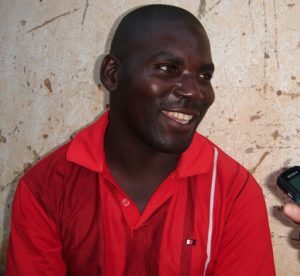Voters in Karonga and Chitipa say they want a president who will implement development projects in their areas once voted into power during the July 2 elections.
In random interviews conducted over the weekend at Lupembe, Mwenilondo and Kasoba in Karonga and at Chitipa boma, peoples’ demands centrered on the implementation of farm input programme, quota system, availability of essential drugs in public hospitals and maize in all Admarc depots in the country, rehabilitation of the 118km Chitipa-Nthalire and 30km Chitipa-Isongole roads, construction of Chitipa bus depot and job creation.
In Chitipa, most youth who were interviewed said previous governments have failed to give them infrastructure development.
In an interview, Blister Mbeghe of Hasyu village Traditional Authority (TA) Kameme said as a taxi driver, his business has been affected due to the bad condition of the road.

“We need a government that will construct roads, a bus depot and some essential amenities in Chitipa,” Mbeghe said.
Many residents in Karonga said the current farm input subsidy program (Fisp) favours politically connected and old people who cannot toil to produce enough for their families.
In an interview, Zomba-based political commentator Ernest Thindwa justified peoples’ demands although he conceded that people have not much influence to demand development from elected leaders because of the ‘bossy’ jacket the politicians wear once elected.
“Under normal circumstances, leaders are supposed to be reachable and held accountable by the governed. Unfortunately, this unitary system of government where the president is far from voters, cannot hear a cry of people at the far corner of Chitipa and Karonga otherwise the federal system of government is commendable since governors are closer to people with budgets for developmental activities for regions or states,” Thindwa said.
Thindwa further said in situations like this, the only remedy is the ballot that can help people to choose a leader of their choice even though it is not guaranteed that voting can end peoples’ problems.
Added Thindwa: “If people are not satisfied, there are alternatives such as petitioning relevant authorities or vote them out. Even though there are challenges because in Malawi it has proven too hard for leaders to act on petitions. While voting for new leadership is also not a guarantee that things can change because leaders become bosses instead of serving the electorates.”
Justice and Peace (JP) of Karonga Diocese Desk officer Louis Nkhata whose institution is implementing various interventions in the two districts to uplift peoples’ socio economic welfare said it is a constitutional right to demand social amenities from duty bearers.
He said: “Those demands are genuine. As bonafide citizens, they have the right to demand infrastructural developments including road network to spur the economy as ours is agro based. Therefore, roads are key in achieving this.”
Nkhata, however, blamed the current voting pattern of the First Past the Post which he said encourages winners to favour their political strongholds, saying the only solution is to implement the 50+1 percent voting pattern that would force leaders to share development equally.














